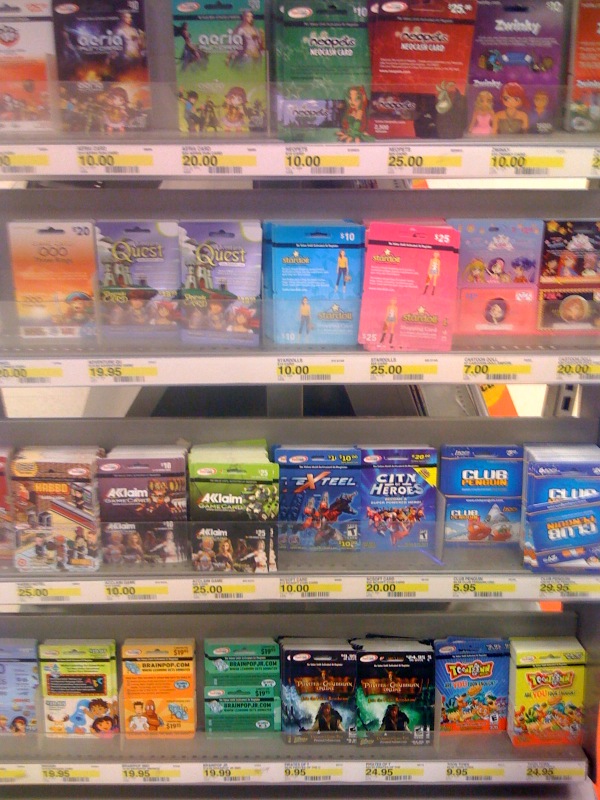Technological advances in genital simulatation continue...
Hot on the heels of the Spore penis creatures, comes a penis machine in little big planet.
If only all that creative talent could be used for good.
"A human being should be able to change a diaper, plan an invasion, butcher a hog, conn a ship, design a building, write a sonnet, balance accounts, build a wall, set a bone, comfort the dying, take orders, give orders, cooperate, act alone, solve equations, analyze a new problem, pitch manure, program a computer, cook a tasty meal, fight efficiently, die gallantly. Specialization is for insects." - Robert A. Heinlein
Hot on the heels of the Spore penis creatures, comes a penis machine in little big planet.
If only all that creative talent could be used for good.
Posted
9:38 PM
1 comments
![]() Labels:
LittleBigPlanet,
NSFW,
Spore,
UserGeneratedContent
Labels:
LittleBigPlanet,
NSFW,
Spore,
UserGeneratedContent
Well, it's as if someone read my last post about IP infringement in User Generated Content centered games.
Posted
6:19 PM
2
comments
![]() Labels:
IntellectualProperty,
LittleBigPlanet,
Tetris,
UserGeneratedContent
Labels:
IntellectualProperty,
LittleBigPlanet,
Tetris,
UserGeneratedContent
The "User Generated Content" or specifically "User Generated GAME" space seems to be red-hot these days.
Wordscraper... supports user-definable boards and tile weightings. Which means you can do, as I have done, a board and tile set that exactly match those of Scrabble, and VOILA! IP circumvention via User Generated Content!!!
If they were to publish something like a board-sharing service, the developer (or FB?) would be subject to DMCA takedown notices, but now Hasbro/Mattel has a harder job: Vigilantly watch the forums, send repeated DMCA takedown notices, etc. Also, I don’t know if other countries have similar laws.
Posted
11:27 AM
3
comments
![]() Labels:
GameBrix,
GameDesign,
Hasbro,
IntellectualProperty,
LittleBigPlanet,
Mattel,
Metaplace,
Silverlight,
UserGeneratedContent,
Webkinz
Labels:
GameBrix,
GameDesign,
Hasbro,
IntellectualProperty,
LittleBigPlanet,
Mattel,
Metaplace,
Silverlight,
UserGeneratedContent,
Webkinz
What is hype? We completely underestimated the marketing effort required for a successful XBLA title. One of the most attractive reasons for us to develop for XBLA was that we wouldn't need a publisher or major marketing, as the game would always be available online and would be able to garner enough sales for us to make up our investment.
This might have been true when we first started developing for XBLA, as there were then fewer than 10 titles available. We, on the other hand, were the 150th title on XBLA, and we were released alongside a very popular remake of a classic arcade game. Going into our release, we had next to no hype and much to our chagrin very little post-release hype.
Researching this more, we realized that this seems to be the bane of all indie developers. Although we found someone to help us with the PR work close to the release date, in retrospect it would have been prudent to show more of the game earlier so consumers would at least recognize the name when they see it on XBLA.
Posted
11:23 AM
0
comments
![]() Labels:
DigitalDistribution,
GoGoBreakSteady,
Marketing,
XBLA
Labels:
DigitalDistribution,
GoGoBreakSteady,
Marketing,
XBLA

There's a been a bunch of people griping about the SecureROM DRM in Spore. Some of those people have now created creatures within Spore to voice their opinions. Crafty, given that the game is built around the sharing of player-generated content.
A few people have pointed to an article that appeared this week on Forbes web site, speculating that Google might get into game publishing.
Posted
9:30 AM
1 comments
![]() Labels:
AdSense,
BusinessModels,
google,
Publishing
Labels:
AdSense,
BusinessModels,
google,
Publishing
GamesIndustry.biz has a post up about Frontier's David Braben making some comments about the second hand games industry. I've commented on this issue before (e.g. here), but thought it worth adding a couple things.
Posted
10:25 AM
0
comments
![]() Labels:
BusinessModels,
GameCredits,
Marketing,
SecondHandGames
Labels:
BusinessModels,
GameCredits,
Marketing,
SecondHandGames
Jeff at Rad posted some video of one of the multi-core specialty dev machines Intel has them working with.
Posted
10:51 AM
1 comments
![]() Labels:
Intel,
Loud,
PCs,
RadGameTools
Labels:
Intel,
Loud,
PCs,
RadGameTools
Quick: How many consoles are there on the market?
Posted
10:30 PM
1 comments
![]() Labels:
BusinessModels,
Consoles,
Leapfrog,
Leapster,
SMartCycle
Labels:
BusinessModels,
Consoles,
Leapfrog,
Leapster,
SMartCycle
I turned on the republican convention coverage for a bit this evening but really couldn't stomach it after a while. I get that McCain's military service arguably speaks to his character, but jeez. We're electing a president. Listening to the speeches, you'd think we were electing Rambo!
Posted
10:27 PM
0
comments
![]() Labels:
Politics
Labels:
Politics
Not one, but two trips to Target in close succession. Ugh. Anyhow, another interesting observation.

Posted
11:01 PM
0
comments
![]() Labels:
RaphKoster,
Retail,
VirtualWorld
Labels:
RaphKoster,
Retail,
VirtualWorld
Google launched their browser, which made some (surprisingly little) noise around the blogosphere yesterday. I installed it (this is my first post made from within Chrome) and thought I'd post some thoughts.

Posted
8:58 AM
4
comments
![]() Labels:
Chrome,
google
Labels:
Chrome,
google